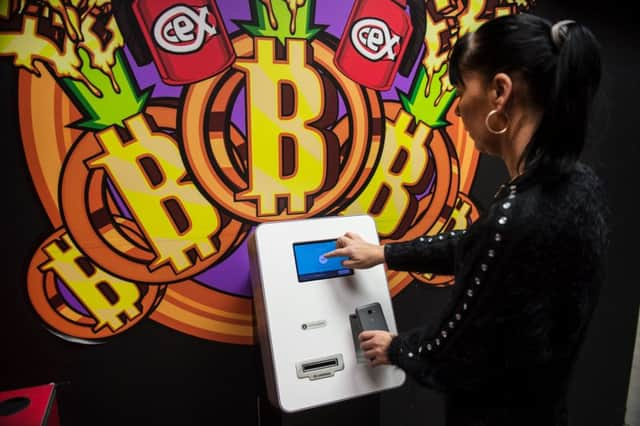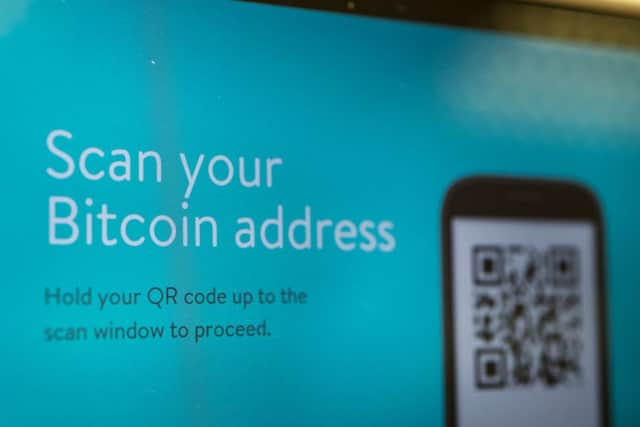Should I invest in bitcoin or has the bubble burst?


Following the fluctuating value of crytpocurrencies like bitcoin can be like watching a rollercoaster. There are a lot of ups and downs, but many of those strapped in for the ride seem to be enjoying themselves.
The digital currency, launched in 2009, long ago moved beyond the online cryptography community and into the business mainstream.
Advertisement
Hide AdAdvertisement
Hide AdWhile it now makes the pages of the Financial Times, it’s not lost its ability to baffle those unfamiliar with the terminologies involved, while even dedicated followers of the financial technologies (FinTech) sector retain a degree of scepticism.


That’s in part because unlike other tradable commodities, like gold or oil, bitcoin is not a physical product. The lack of a centralised regulator can also be off-putting to new investors, as does the quasi-anonymous status of users.
None of that matters to those who have already cashed in. They point to the ability to send and receive money anywhere in the world, very low transaction fees, and value the high degree of privacy.
Then there was the bitcoin goldrush of late 2017.
The value fluctuated wildly from day to day and sometimes hour by hour. One bitcoin in April 2013 could be bought for £20 - in January 2018 it was worth more than £13,000. Today, it’s worth a little more than £5,500.
That price rise and subsequent crash have led to a steady stream of comment pieces in the financial and technology press asking if bitcoin has peaked and interest in cryptocurrencies is in decline.
The number of people searching for bitcoin online both in Britain and worldwide has fallen sharply since the start of the year, the This is Money website found.
Searches for the digital currency reached their summit in the week starting 17 December 2017, which is exactly when the price peaked at nearly $20,000 a coin.
But David Low, co-owner of Scotcoin, argues cryptocurrencies are going no where and the value of the blockchain technology they utilise is only going to increase.
Advertisement
Hide AdAdvertisement
Hide Ad“I don’t believe bitcoin is a bubble or that it will die,” he told The Scotsman. “The genie is out of the bottle. Anyone who thinks they can cap it is following the King Canute business school of thought.
“The underlying technology, blockchain, is revolutionary and is here to stay. Crytocurrencies are no less than the first asset class to use blockchains and many other applications will follow.
“I take the view that as soon as the crypto-markets are large enough - or disruptive enough - governments and regulators will step in and tax it. That’s the direction it’s heading. They won’t kill it - but they will treat it as a revenue source.”
Scotcoin is one of around 1,000 cryptocurrencies currently trading online. It is in the process of constructing its own blockchain – the un-hackable software and public ledger of online transactions.
“Bitcoin is the dollar, or the reserve currency, of crpto-land,” said Low. “I view it more as an alternative invesment, akin to gold. I don’t ever perceive bitcoin being used on any grand scale for the exchange of goods and services. It is too big, too expensive to operate, the transaction costs are too much. You can’t pay £20 for a £5 cup of coffee, and then wait 30 minutes for the transaction to process. I think other tokens and currencies will emerge to fulfil that role.”
Low added that as cyrptocurrency remains a relatively new asset class, “one still in its kindergarden phase” it was impossible to predict when it would become much more mainstream.
So is now a good time to invest? “Anyone interested should speak to an appropriately qualified person for advice,” said Low.
